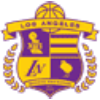Before using all of their available cap space, the Lakers could have freed up another $6 million in cap space by using the stretch provision on Nash. Perhaps they were frightened by the potential of it backfiring. For starters, the only remaining unrestricted free agent the Lakers could have conceivably had interest in signing in the $8-9 million range was Lance Stephenson, and it wasn’t as if there were any reports that there was interest from either side. Using the stretch on Nash’s contract to free up cap space for an offer sheet to a restricted free agent like Phoenix’s Eric Bledsoe or Detroit’s Greg Monroe was just far too big a risk. If either the Suns or Pistons were to match, the Lakers could have been stuck with $3.23 million of Nash money counting against their cap for two additional years after this one.
If the front office felt the need to free up the $1.1 million on Bazemore’s option, Nash’s contract would have eaten up three times that amount. At least the Lakers can still try to trade Nash’s expiring contract until the deadline. Otherwise, don’t be surprised if they reach a buyout with him by March 1 and let him chase a ring with a contender.
**In case you’re unfamiliar with it, the stretch provision allows teams to waive any player who was signed after the implementation of the NBA’s current collective bargaining agreement. By design, the remaining amount of money owed and it’s salary cap number are spread over twice the number of remaining years on the contract, plus one. Because Nash has one year left on his contract, the $9.7 million he’s due next season would instead get spread out over three years because (1 x 2) + 1 = 3. Since $9.7m/3 = $3.23m, the Lakers would take a cap hit of $3.23m over three consecutive seasons, beginning with the upcoming season.

A decent chunk of the Lakers’ available cap space was used to acquire Jeremy Lin and a first-round pick from the Houston Rockets. Since the Lakers won’t have a pick in next year’s draft unless it falls in the top-5, the Lin acquisition gives them draft insurance. By letting Chandler Parsons leave, trading away Lin and Omer Asik for cap space, and whiffing on LeBron, Melo, and Chris Bosh, the Rockets, who finished with the fourth-seed in the Western Conference last season could take a giant step backward. Should they miss the playoffs, which still seems unlikely although is no longer impossible, their pick would end up no lower than 14th.
I really don’t know what the Lakers intentions are with Lin. Do they envision him as part of their future, and if so, what type of contract would they be willing to offer him when he becomes a free agent next summer? Would he get anything close to an annual average of $9 million per season again? Between Nash and Lin, the Lakers have about $18 million in expiring point guard contracts. Although Lin will make about $15 million next season, his cap number for trade purposes is only $8.3 million.
— Have You Seen These LIMITED EDITION “Mamba Strikes Back” T-Shirts? —
The Lakers added Boozer by winning the amnesty auction with a $3.25 million bid. By rule, players obtained via amnesty waivers can’t be traded for one year. In other words, because Boozer is in the last year of his contract, the Lakers can’t trade him. Much like Lin, the question with Boozer is where he fits into their plans beyond next season. He turns 33 in November and is coming off the worst statistical season of his career. If he was even half the player he once was, the Bulls would not have opted to pay him $13 million to play for someone else. The question is whether he can at least be better than he was last season. The best-case scenario is that Boozer and Randle find a way to coexist. Hopefully, Boozer’s mid-range shooting leaves the paint free for Randle to do what it is he does best. Worst-case scenario is the team doesn’t come close to making the playoffs and Boozer hinders the development of younger players by taking minutes away from them.

There’s a stat the NBA keeps track of that it calls contested rebounds, defining them as “the number of rebounds gathered where an opponent is within 3.5 feet.” Clarence Gaines II, the former Bulls scout during both three-peats and one of the first hires Phil Jackson made when he took over as Knicks president, has always been a big proponent of them. Gaines refers to them as “traffic rebounds”. Considering that Hill only averaged about 21 minutes per game last season, there was no way his 3.3 contested rebounds per game average was going to lead the league. That honor went to Andre Drummond of the Pistons, who averaged 6.1 per game. But if you were to break down the category per minute instead of per game, Hill had a better average than even DeAndre Jordan, the NBA’s rebounding champion, as well as other noted rebounders like Kevin Love, Dwight Howard, and Joakim Noah. In fact, Hill trailed only Drummond amongst players who played a minimum of 50 games. The big question with Hill is whether or not he has the durability and work ethic to play 30-plus minutes per night.
Hill’s contract probably garnered more head scratches than any other move the Lakers made this offseason. The first thing I thought of when I heard that it was for $9 million per year, with only the first year guaranteed, was Kwame Brown. Back in 2005, the Wizards had signed-and-traded Brown to the Lakers for Caron Butler and Chucky Atkins. Brown’s contract was for three years and $25 million, with only the first two years and $16 million of it guaranteed. That seemed like a lot of money for someone who was coming off a season in which he averaged just seven points and five rebounds. The fact that the Lakers were also giving up Butler in the trade made it even weirder. Butler, who had struggled to fit in with the Lakers since coming over from Miami in the Shaquille O’Neal trade, had really figured things out towards the end of the season. Even though he averaged 15.5 ppg and 6 rpg for the season, he averaged 23 and 8 over the final month of the season.
[divide]Kobe Bryant Answers Fan’s Questions, Talks Keys To The Game
PAGE 3: Trying To Make Sense of The Lakers Uneventful Offseason (So Far)






